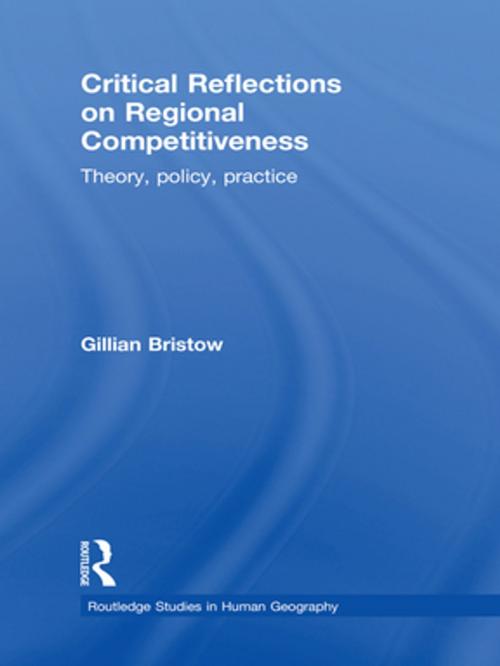Critical Reflections on Regional Competitiveness
Theory, Policy, Practice
Business & Finance, Economics, Urban & Regional, Nonfiction, Science & Nature, Science, Earth Sciences, Geography, Social & Cultural Studies, Social Science, Human Geography| Author: | Gillian Bristow | ISBN: | 9781135225209 |
| Publisher: | Taylor and Francis | Publication: | April 5, 2010 |
| Imprint: | Routledge | Language: | English |
| Author: | Gillian Bristow |
| ISBN: | 9781135225209 |
| Publisher: | Taylor and Francis |
| Publication: | April 5, 2010 |
| Imprint: | Routledge |
| Language: | English |
Since the early 1990s, governments and development agencies have become increasingly preoccupied with the pursuit of regional competitiveness. However, there is considerable confusion around what exactly regional competitiveness means, how it might be achieved, whether and how it can be measured, and whether it is a meaningful and appropriate goal for regional economies. The central aim of this book is to provide a comprehensive and critical account of these debates with reference to theory, policy and practice, and thus to explore the meaning and value of the concept of regional competitiveness.
The book is structured into three parts. Part one introduces the concept of regional competitiveness by tracing its origins and exploring its different meanings in regional economic development. This will critically engage with political economy approaches to understanding the nature and dominance of the competitiveness discourse. Part two interrogates the pursuit of regional competitiveness in policy and practice. This critically evaluates the degree to which the pursuit of competitiveness is encouraging convergence in policy agendas in regions through an examination of key determinants of policy sameness and difference, notably benchmarking and devolved governance. Part three explores the limitations to regional competitiveness and explores whether and how its predominance in the policy discourse might be challenged by alternative agendas such as sustainable development and wellbeing. This focuses on the developing qualitative character of regional development.
This volume critically engages with the theory and policy of regional competitiveness, thus providing the first integrated critique of the concept for undergraduate and postgraduate students, as well as academics interested in regional development and policy. It will unpack the concept of regional competitiveness and explain its usefulness, limitations and policy appeal, as well as examining its sustainability in the light of evolving governance structures and the imperatives of broadening regional development agendas.
Since the early 1990s, governments and development agencies have become increasingly preoccupied with the pursuit of regional competitiveness. However, there is considerable confusion around what exactly regional competitiveness means, how it might be achieved, whether and how it can be measured, and whether it is a meaningful and appropriate goal for regional economies. The central aim of this book is to provide a comprehensive and critical account of these debates with reference to theory, policy and practice, and thus to explore the meaning and value of the concept of regional competitiveness.
The book is structured into three parts. Part one introduces the concept of regional competitiveness by tracing its origins and exploring its different meanings in regional economic development. This will critically engage with political economy approaches to understanding the nature and dominance of the competitiveness discourse. Part two interrogates the pursuit of regional competitiveness in policy and practice. This critically evaluates the degree to which the pursuit of competitiveness is encouraging convergence in policy agendas in regions through an examination of key determinants of policy sameness and difference, notably benchmarking and devolved governance. Part three explores the limitations to regional competitiveness and explores whether and how its predominance in the policy discourse might be challenged by alternative agendas such as sustainable development and wellbeing. This focuses on the developing qualitative character of regional development.
This volume critically engages with the theory and policy of regional competitiveness, thus providing the first integrated critique of the concept for undergraduate and postgraduate students, as well as academics interested in regional development and policy. It will unpack the concept of regional competitiveness and explain its usefulness, limitations and policy appeal, as well as examining its sustainability in the light of evolving governance structures and the imperatives of broadening regional development agendas.















